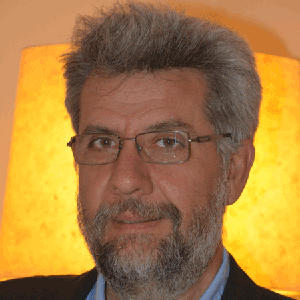 Prof A. Delopoulos
Prof A. Delopoulos Prof. Anastasios Delopoulos (male) graduated from the Department of Electrical Engineering of the National Technical University of Athens (NTUA) in 1987, received the M.Sc. from the University of Virginia in 1990 and the PhD degree from NTUA in 1993. He is a Professor of Multimedia Systems in the Electrical and Computer Engineering Dept. of the Aristotle Univ. of Thessaloniki. His research interests lie in the areas of multimedia data understanding, learning and computer vision. He is author of more than 100 journal and conference scientific papers. He has participated in 23 European and National R&D projects related to application of signal, image, video and information processing to entertainment, culture, education and health sectors. Dr Delopoulos was the coordinator of SPLENDID - Personalised Guide for Eating and Activity Behaviour for the Prevention of Obesity and Eating Disorders (FP7 – 610746) and he is currently the coordinator of BigO - Big data against childhood Obesity (H2020 - 727688). Dr. Delopoulos is a member of the Technical Chamber of Greece and of the IEEE.
The way we eat and what we eat, the way we move and the way we sleep significantly impact the risk of becoming obese. These three aspects of behaviour decompose into a long list of personal behavioural elements including our food choices, eating place preferences, transportation choices, sleeping periods and duration etc. Most of these elements are highly correlated in a causal way with the conditions of our local urban, social, regulatory and economic environment. Big Data Against Childhood Obesity (BigO, H2020 Project) develops technological solutions that objectively monitor a matrix of obesogenic behavioural elements and acquire information related to the local environment conditions. The first rely mostly on signals captured by very simple wearable devices (accelerometers, gyroscopes, GPS) embedded in smart phones and smart watches while the latter resort to public sources, like maps, and to the data of statistical authorities. Based on this infrastructure, we are ready to link the obesogenic behaviours with the local environment; this creates a wealth of evidence for medical experts, epidemiologists, urban designers, obesity experts and public health authorities. In this presentation we will investigate the core information acquisition technologies developed so far as well as approaches for the analysis of the collected big data in a privacy protecting manner.